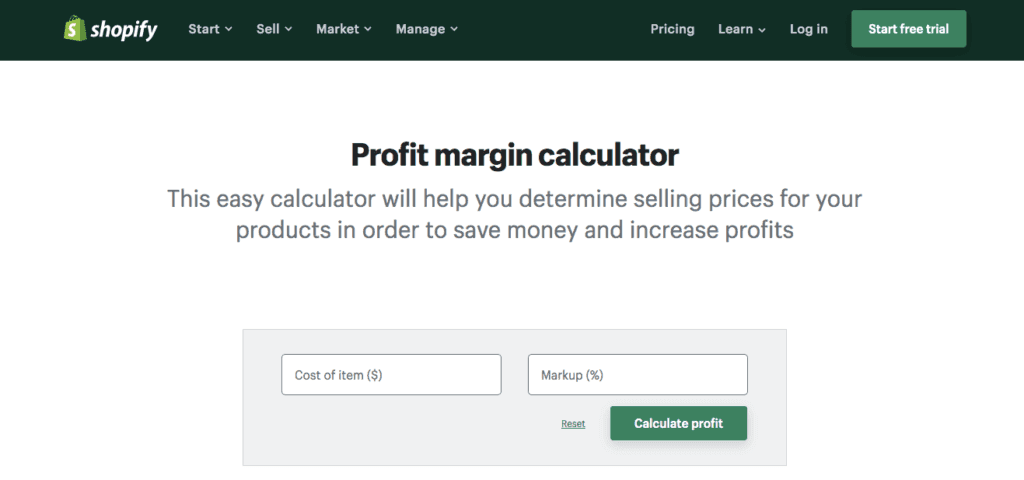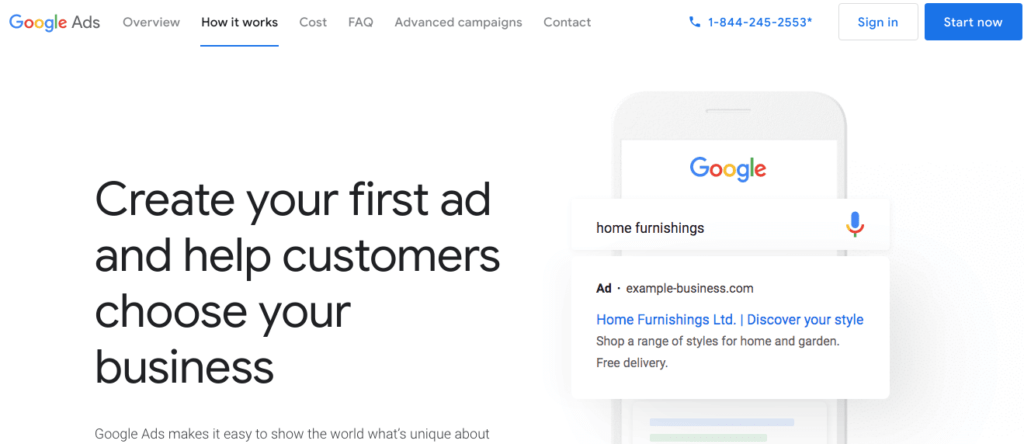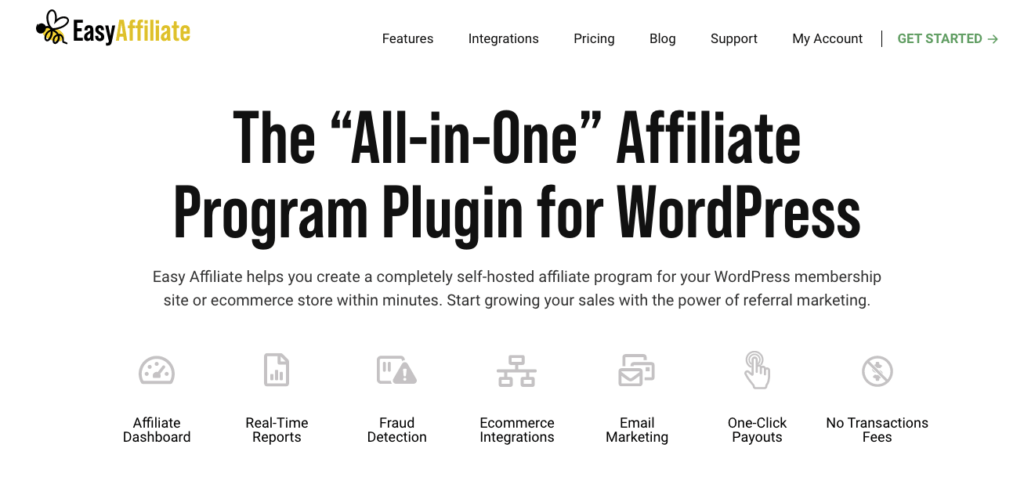Table of Contents
When you own a small business, it can be difficult to find the right audience for your products. What's more, you might not have the budget, resources, or time to create and run your own ads.
Fortunately, affiliate marketing can provide an accessible and effective way to grow your small business. This strategy offers limited start-up costs and low long-term risks. With the help of affiliate marketers, you can widen your audience and gain a higher return on investment (ROI).
In this post, we'll discuss the basics of affiliate marketing. Then we'll go over four reasons you may want to consider launching this performance-based program for your small business. Let's get started!
An Introduction to Affiliate Marketing
To put it simply, affiliate marketing is an advertising technique in which businesses reward content creators who recommend their products or services. These individuals direct their audiences to your business in exchange for commissions.
This means that affiliate programs involve three parties: customers, affiliates, and sellers. In this case, your small business would be the seller.
In order to try out affiliate marketing, first you'll need to make sure your products or services are ready to go. Then you can reach out to content creators. These bloggers or social media influencers are the affiliates. They advertise your products on their websites or social channels, using affiliate links or ads:

The affiliate's followers are the customers. In an ideal affiliate program, buyers will purchase your business' products based on their favorite creators' referrals.
There are a few different ways you can reward affiliates:
- Pay-Per-Click (PPC): You pay affiliates a commission based on the number of clicks on their affiliate links.
- Pay-Per-Sale (PPS): You give affiliates a portion of every purchase made from affiliate links.
- Pay-Per-Lead (PPL): You pay affiliates for each lead (usually an email address) they generate.
Whatever payment method you choose, it's important to find content creators who will perform well. When reviewing affiliate applications, consider focusing on prominent social media influencers with high-traffic sites. Also, make sure you only work with affiliates who are in line with your brand and its values.
4 Reasons Affiliate Marketing Is a Fantastic Way to Grow Your Small Business
Now that you know the affiliate marketing basics, let's discuss why this could be an effective option to scale your business.
1. Low Costs
The start-up costs of an affiliate marketing program are very low. For many small business owners, this is a significant advantage.
What's more, traditional advertising techniques are often expensive and don't guarantee results. With affiliates, you only pay based on performance.
If you're still not sure about whether you have the funds, don't worry. You can use a profit margin calculator to estimate the total costs of an affiliate program:

Be sure to include your affiliates' commissions in your product's gross cost. Also keep in mind that, although you'll lose a small profit cut to pay commissions, you may receive a significant boost in sales.
When you set up your affiliate marketing program, you can also set a maximum rate to pay affiliates. This can be beneficial if you have a limited marketing budget.
Our own Easy Affiliate is a great tool for setting fixed commission rates. You can even create commission tiers to protect your profit margin and prevent unexpected expenses.
2. Low Risks
For most small businesses, there are very few risks involved in affiliate marketing. This is because you only pay for results. Furthermore, no matter your business' niche, you can easily host a profitable affiliate program.
Since affiliate programs also pose very few risks for content creators, you likely won't have any trouble finding them. In fact, partnering with small businesses is often an important first step creators take to monetize their blogs or websites:

However, you should be mindful of how you select your affiliates. If you're not careful, a poorly-matched affiliate can damage your brand's image.
Finally, affiliate marketing is very low risk for customers as well. They don't have to face price changes when using affiliate links. That way, they can support their favorite creators without paying extra fees on your products. Typically everyone involved will view affiliate marketing as a win.
3. High Return on Investment (ROI)
Return on investment (ROI) is a measure of how profitable a certain venture will be. To determine this, you'll need to compare the expenses versus the profits. In general, you're aiming for as high an ROI as possible.
In this sense, affiliate marketing fits the bill. As you already know, it is extremely low cost and little extra work for the seller (after the initial setup process). What's more, you only pay when sales are made.
With other forms of marketing, you likely pay a fixed fee regardless of conversions. This applies to platforms such as Google Ads:

If you run a Google Ads campaign, you pay for each click on your advertisement. You might direct traffic to your website with expensive keywords, but there is no guarantee that those visitors will make purchases.
On the other hand, you only pay affiliates for successful conversions. Rather than producing low-quality traffic, you can save your budget and pay for results.
4. Targeted Exposure
Social commerce is becoming increasingly commonplace. More and more, people are looking to their favorite influencers for recommendations, because they know those recommendations will be catered to them.
What's more, this targeted exposure can more efficiently drive sales. That's because it boosts the likelihood that you're reaching your ideal customer.
However, keep in mind that finding the right creators to partner with is key. You'll likely want to pair with individuals who truly love your brand. Ideally, they will also have plenty of followers:

The more people your affiliates are engaging with, the more views your product will likely get.
Additionally, as a small business owner, you might struggle to improve your search engine optimization (SEO). However, running an affiliate program can outsource some of the hard work of SEO.
When bloggers promote your product using specific keywords and content optimized for your target niche, this can drive more organic traffic to your site. As a result, you may see improvement in your search engine rankings.
How to Get Started With Affiliate Marketing
Best of all, you can easily start your first affiliate program with Easy Affiliate. Using our plugin, you can analyze your affiliates' performance and quickly contact them if needed:

After downloading Easy Affiliate, you can pay affiliates using PayPal 1-Click payments. You can also easily set and track commission rates, and be alerted of any fraudulent activity.
Conclusion
Affiliate marketing offers one of the best ways to spread awareness about your small business. With this method, you can reward bloggers and social media influencers who drive traffic to your website. In turn, this could increase your revenue without the high costs and risks of traditional advertising.
To review, here are four reasons affiliate marketing is a great way to grow your small business:
- Low costs
- Low risks
- High ROI
- Targeted exposure
Do you have any questions about creating a small business affiliate marketing strategy with Easy Affiliate? Let us know in the comments section below!
If you liked this article, follow us on Twitter, Facebook, Pinterest, and LinkedIn. And don't forget to subscribe to our newsletter




Leave a Reply